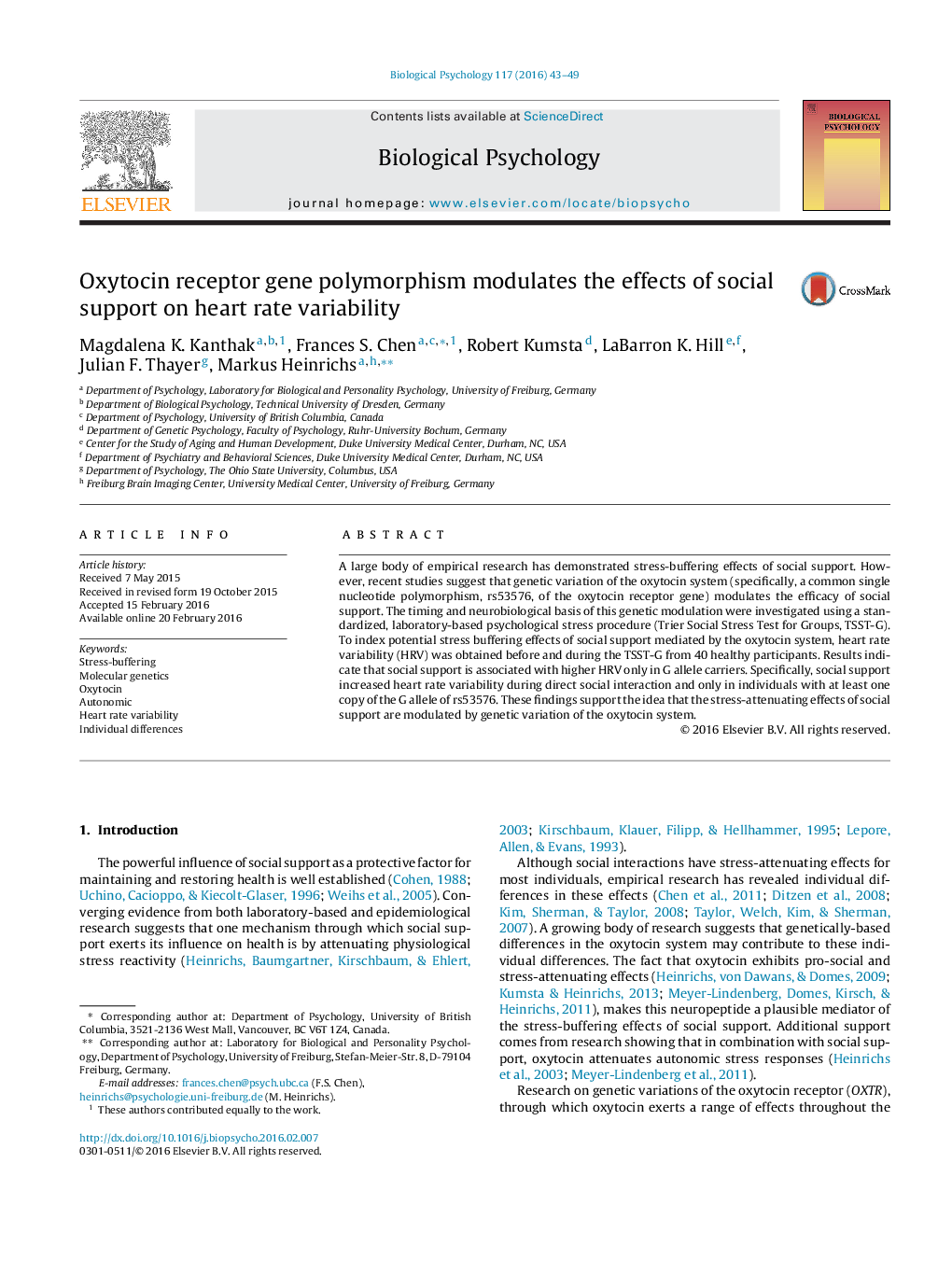| Article ID | Journal | Published Year | Pages | File Type |
|---|---|---|---|---|
| 920696 | Biological Psychology | 2016 | 7 Pages |
•Oxytocin receptor gene polymorphism modulates effects of social support in the context of stress.•Social support increases HRV only in carriers of at least one G allele of rs53576.•Social support influences HRV specifically during direct social interaction.
A large body of empirical research has demonstrated stress-buffering effects of social support. However, recent studies suggest that genetic variation of the oxytocin system (specifically, a common single nucleotide polymorphism, rs53576, of the oxytocin receptor gene) modulates the efficacy of social support. The timing and neurobiological basis of this genetic modulation were investigated using a standardized, laboratory-based psychological stress procedure (Trier Social Stress Test for Groups, TSST-G). To index potential stress buffering effects of social support mediated by the oxytocin system, heart rate variability (HRV) was obtained before and during the TSST-G from 40 healthy participants. Results indicate that social support is associated with higher HRV only in G allele carriers. Specifically, social support increased heart rate variability during direct social interaction and only in individuals with at least one copy of the G allele of rs53576. These findings support the idea that the stress-attenuating effects of social support are modulated by genetic variation of the oxytocin system.
